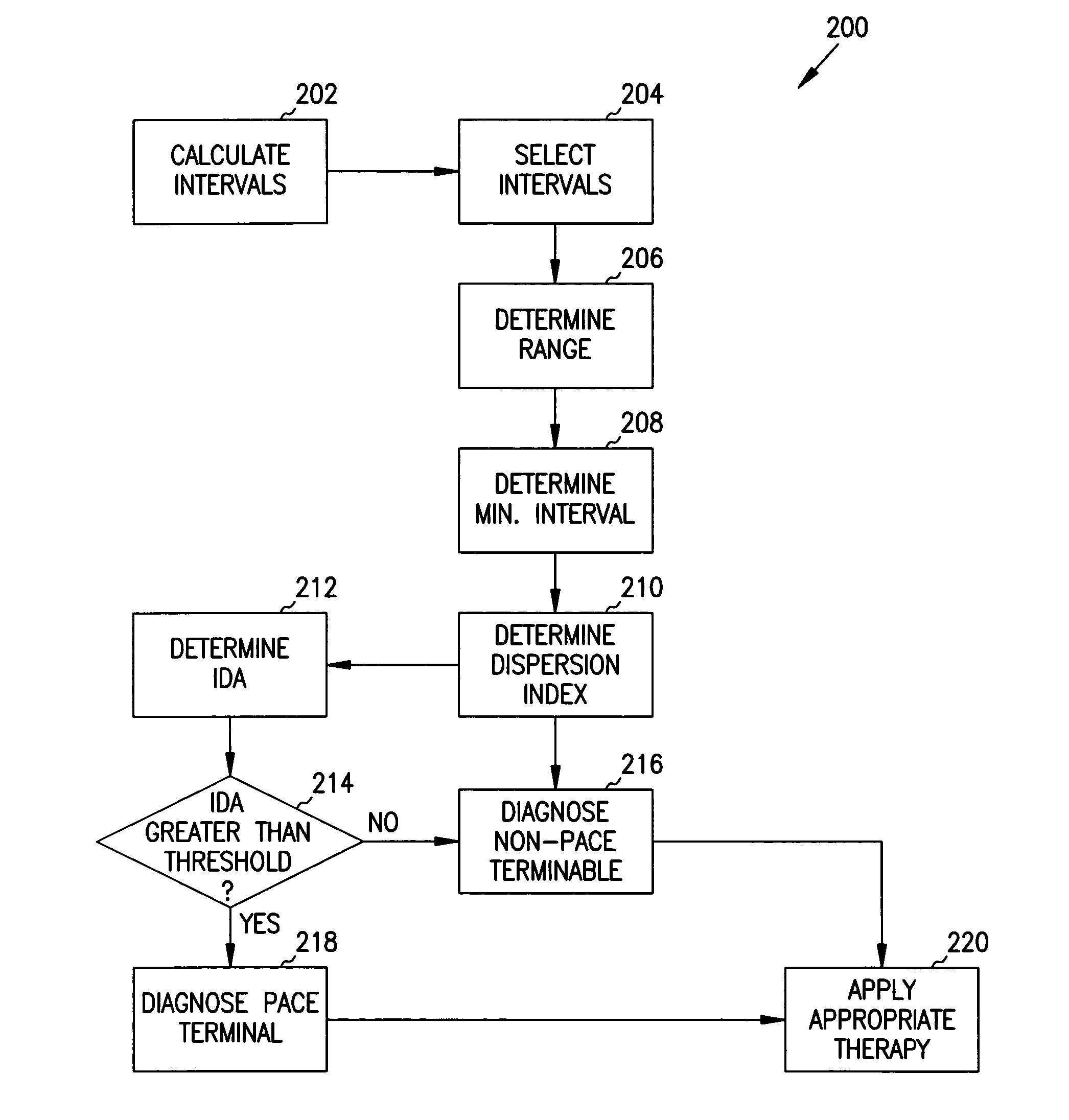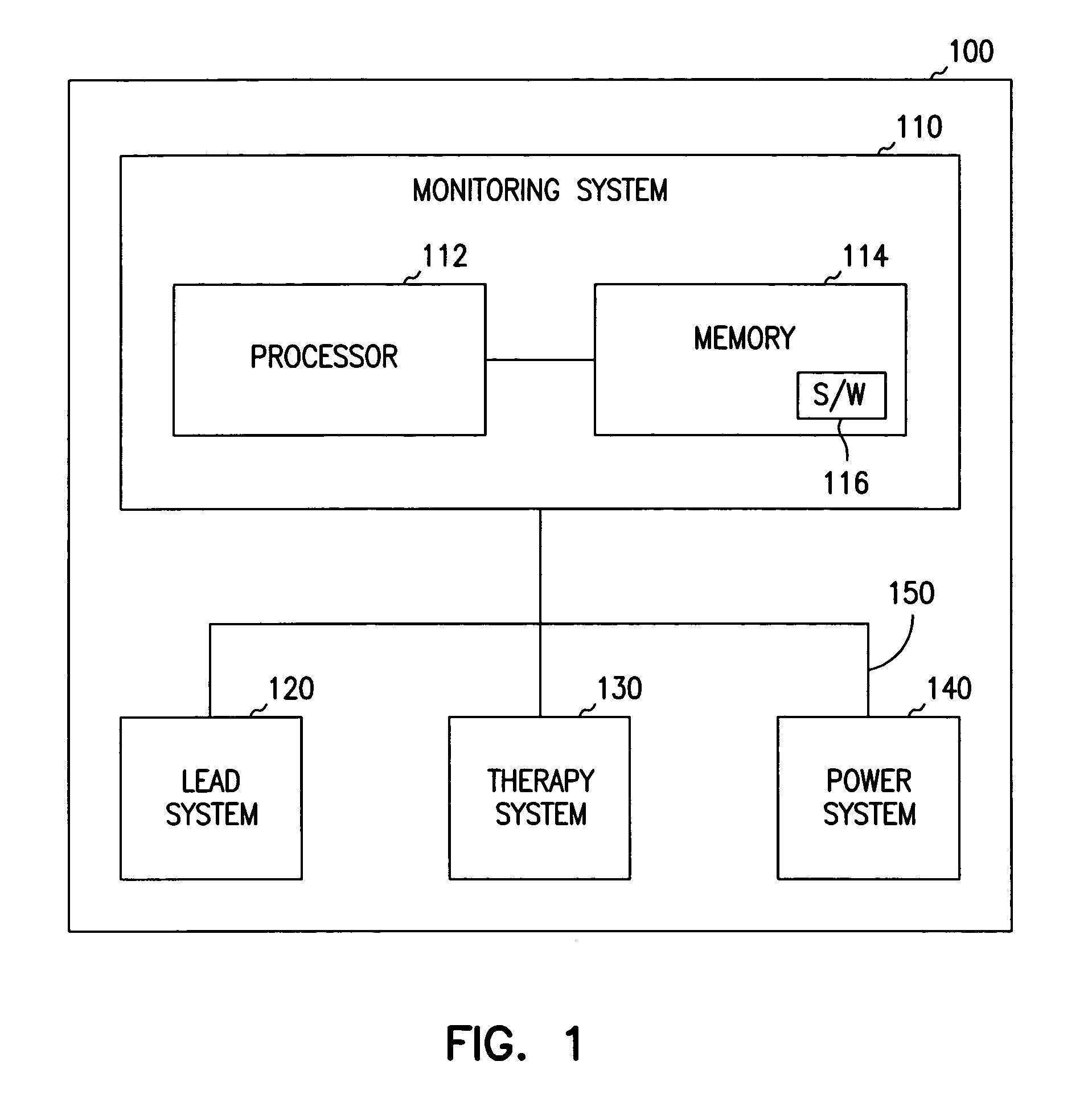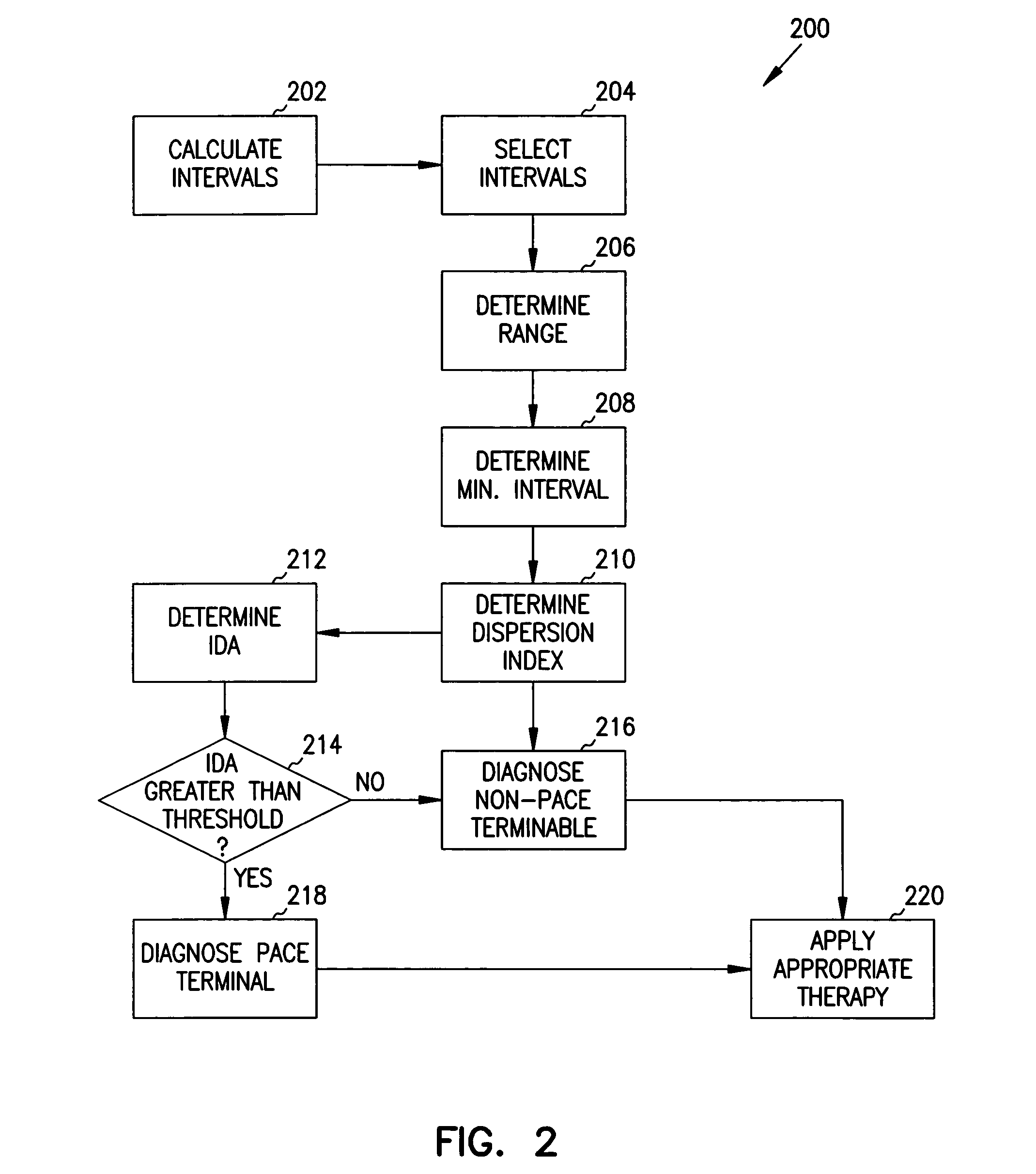Therapy-selection methods for implantable heart monitors
a heart monitor and selection method technology, applied in the field of heart monitors and selection methods, can solve the problems of increasing the response time of the device, requiring considerable processing time and power to implement, and complex algorithms are either too complex or too simple, so as to achieve the effect of identifying and treating abnormal rhythmic conditions both efficiently and accurately
- Summary
- Abstract
- Description
- Claims
- Application Information
AI Technical Summary
Benefits of technology
Problems solved by technology
Method used
Image
Examples
Embodiment Construction
[0016]The following detailed description, which references and incorporates FIGS. 1-4, describes and illustrates one or more specific embodiments of the invention. These embodiments, offered not to limit but only to exemplify and teach the invention, are shown and described in sufficient detail to enable those skilled in the art to practice the invention. Thus, where appropriate to avoid obscuring the invention, the description may omit certain information known to those of skill in the art.
[0017]FIG. 1 shows an exemplary implantable heart-monitoring device (or pulse generator) 100 incorporating teachings of the present invention. Device 100 includes a monitoring system 110, a lead system 120, a therapy system 130, a power system 140, and an interconnective bus 150. Monitoring system 110 includes a processor or microcontroller 112 and a memory 114. Memory 114 includes one or more software modules 116 which store one or more computer instructions in accord with the present invention....
PUM
 Login to View More
Login to View More Abstract
Description
Claims
Application Information
 Login to View More
Login to View More - R&D
- Intellectual Property
- Life Sciences
- Materials
- Tech Scout
- Unparalleled Data Quality
- Higher Quality Content
- 60% Fewer Hallucinations
Browse by: Latest US Patents, China's latest patents, Technical Efficacy Thesaurus, Application Domain, Technology Topic, Popular Technical Reports.
© 2025 PatSnap. All rights reserved.Legal|Privacy policy|Modern Slavery Act Transparency Statement|Sitemap|About US| Contact US: help@patsnap.com



